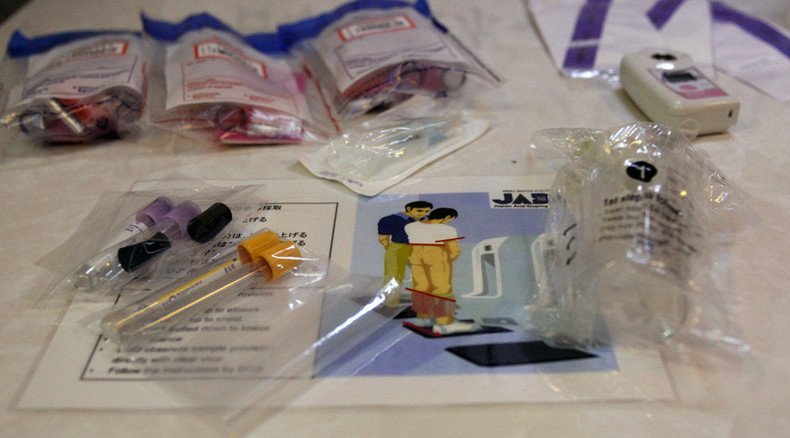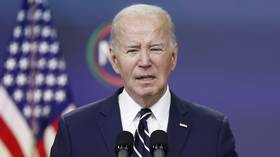British & German media allege world athletics covered up mass doping scandal

A study has reported that the governing body of athletics suppressed a survey in 2011 that revealed a third of the world’s top competitors had admitted taking banned substances.
The claims were made by the British newspaper the Sunday Times and the German broadcaster ARD/WDR, who were given access to the study, which was conducted by the University of Tubingen in Germany.
The research undertaken involved interviews with 1,800 athletes at the 2011 world championships in Daegu, South Korea, with the results showing that 29-34 percent of those asked had broken anti-doping rules over the last 12 months. However, whilst conducting the study, the authors of the project were told to sign a confidentiality agreement.
The university was scathing of the International Association of Athletics Federations (IAAF)
“The IAAF’s delaying publication for so long without good reason is a serious encroachment on the freedom of publication,” a statement from the researchers said, as cited by Reuters.
READ MORE: WADA increases doping bans to four years
The statement added that the IAAF had not commissioned the survey but had used its influence to suppress the findings. The study was financed by the World Anti-Doping Agency (WADA), which told the Sunday Times that it had given the IAAF the power to veto the publication of the survey in return for allowing access to the athletes at the 2011 championships.
However, the lead author of the project, Rolf Ulrich, hit out, saying that the team was not even allowed to discuss its work that had been carried out.
"The IAAF is blocking it," Ulrich told the newspaper. "I think they are stakeholders with WADA and they just blocked the whole thing."
The revelations are another serious blow to the IAAF, which has faced a number of doping scandals and claim over the last 12 months.
Doping leak: Over 12,000 blood tests reveal scores of ‘dirty’ sporting medals http://t.co/BCltxQS63cpic.twitter.com/tMCWtQIvrF
— RT (@RT_com) August 2, 2015Earlier investigations by ARD and the Sunday Times prompted claims that more than 800 athletes tested between 2001 and 2012 had suspicious test results that were not followed up by the IAAF. Almost half of these positive results were believed to be from Russian athletes.
However, this brought a furious response from Vladimir Kazarin, the coach of two Russian athletes alleged to have submitted suspicious blood samples, who said the accusations were unfounded. "If you have official positive doping tests, show us. If not, goodbye," he told Reuters.
Meanwhile, Runner Ekaterina Poistogova, who won a bronze medal at the London 2012 Olympics, said she had nothing to hide after being named in the investigation.
"I do not believe one word of this film," she told news agency R-Sport. "The whole thing is a lie. It is more important for me to get ready to compete.”
READ MORE: Sochi Olympics doping tests are ‘toughest-ever’ – IOC chief
WADA also threw their weight behind the IAAF, saying that the organization had done a lot to try and tackle the issue of illegal doping in athletics.
"This is highly unfair to the IAAF, an institution which should be regarded in high esteem for its countless efforts and investment, throughout its history, to tackle doping in athletics in the most efficient and intelligent way,” said Professor Arne Ljungqvist -- former chairman of the IOC Medical Commission and vice president of WADA.
"As WADA also has stated, any judgment on blood sample must be based on the analysis of three appointed experts. We cannot accept 'Trial by Media' based on 'rogue samples and' analysis which is taken out of context," the organization added in a statement.












